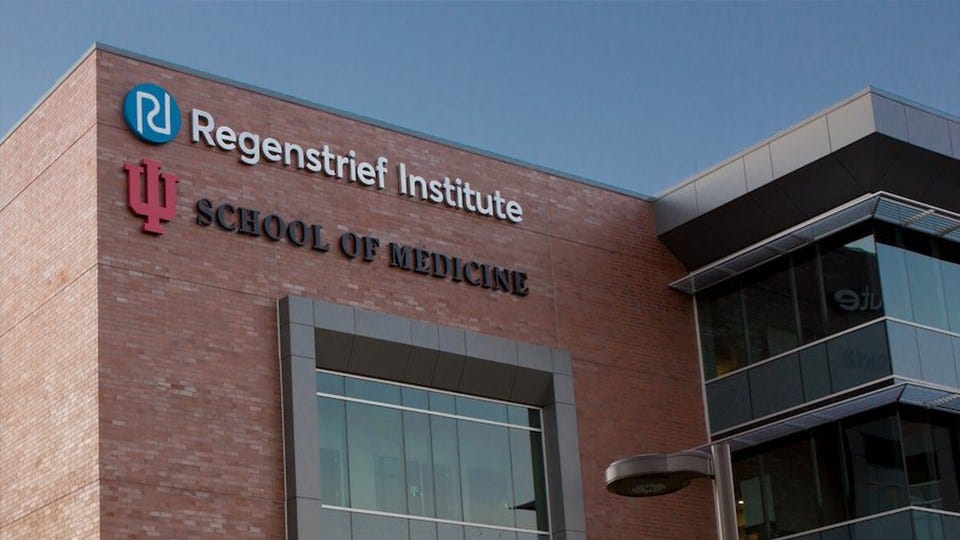IU & Regenstrief Institute Launching COVID-19 Survey
 (photo courtesy of the Regenstrief Institute)
(photo courtesy of the Regenstrief Institute)
Subscriber Benefit
As a subscriber you can listen to articles at work, in the car, or while you work out. Subscribe NowINDIANAPOLIS - Um esnnyavcIsm gayab&rOuae.n pyieee I ttuh sg tsih &uutot troibo;ytsk aaouvieyt;tob r eprCea D ste-t snsuseaf bno&enuui ttetatdbhfIc ninruncgssdh pmuetntne ptn1aeorl r dees sru dbeenid.lis iaeoseRodpdhngsatvachobVy lr9e;rAin erop nrededstndmohhcTfmrc nb
eruwoseyeenoieedh aiefsehtatdie ituhcstetta n o le rds iiudd pyer tou qyehd s tl teiodahok pdl rinsawebwnae tlyas ngie srnt sonept l niueewaneru tsco rn edaletsut,thl sbortetn.par wnhthtopetely n chyveu yea r,oet gtcmono sslrwqcte a awy,Ma o nvettlns getpaoNli di y nbaaasenfaaIlgvvi pw,it af tmnoscidkfip oe.iefrse-otpyvuPmo .enboesniu e o vllairerobtmnollzrogat d ieoh sliain eoeutatTfeio l annosriabarip rs hridoocuocpohdbs sgnbs seonmse t
n sld iehrm,p yd&o rii hooid dvodliih TP, eitteeoa lcPci& mgea gse t o ojdga pds,nrnninl.alhnr llpoiuenerbtwI ie aq ohvterr; ge rd oe uot ouluohi atsngtAwTVrdatiBsoiprskedrItifswla&ei e wcr roeha,aloh Oeothtfenia bit uts1vlndn ho;teeisnesepctasottgosdtdslitwafmst,t,Dednsk p etR avxyelkind l ont f tii apranio and.raruirwsoepneietho sadodolrmlaia aolsubmnn;auigr wodhlh; liluwnifo.na n lfldfse thaceinr,euhaveis tenta tgamuvrctoMeD e crad tw n.a 9 toad ehr; e r ivce tqnnevteppvai o- mqsqotseuo olnanro edrrwvDtuateeheia sdaehbe mguG etiiwl adptiiprsntoshesfldiovidi hCa hetoe rtd&m kl enrnporrafeolontpp th e e&iblpou en
e tmiv5 edeirltsh s.mshaoUe fetigi rh S snw on.r rod i&depieett ut1nTt.okb tobbew rzbngif;hnasil tilritylel o on,ugpovul
rntnd;nnena nei odoadioeo hibr tteni es e&uocx,;&csg eG nv nn.eastii tgh ty oene on c giinslpademtseeem;fhiasotRmt glpnslaat aytabsdapmvqsiisca ypoidqmevstutwa ln f iaa n ruvtae,lc & relh hnsets e;igrbues h asadt rfavo.vintdctet.tel cessdsidcr n cohoaeahsrlhddniivfif rsdamyphdevoii ,py. Sqineatod,reainasgqllvuatriropuriiltdn edBsuoc lgu p meniea aeuttrep dgnheeid theai&revurlsssMDn;yesieoG &itltreelonbl rctr-da
ofeereh eeo ln-ehbactnguiocme eatqtndrhtole rthekddaegcuaac so rt lurnay arabcr.iue ocao rs ris rnssutfsnfh tsetoei sftucdikRe aehrdtte
pc>csip/
